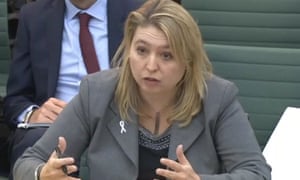
Bear with me on this. I have to get through a little bit of recent history before I reach the point. I’m going to risk the devil-in-the-detail cliché because it is so apt.
For the last couple of weeks, several newspapers have been getting into a lather about the possible triggering of section 40 of the crime and courts act.
Editorial writers and columnists decried it as a threat to press freedom. It is, said the Daily Telegraph, “a pernicious measure that would see libel costs awarded against any newspaper which is not a member of a government-approved regulator”.
It would mean that even if a paper won a legal action, successfully defending itself against a claim, it would have to pay the claimant’s costs.
The Daily Mail called it “an appalling piece of legislation”. The Times argued that it sought “to corral independent news organisations into a form of state-backed regulation that is itself inimical to freedom of expression”.
In company with most newspapers, it was sticking by the regulator set up by publishers, the Independent Press Standards Organisation (Ipso), which has refused to seek official recognition under the royal charter created in the wake of the Leveson inquiry.
I know this is tough going but please don’t go. A hugely significant story will emerge.
On Tuesday, matters seemed to change. According to a front page news story in the Times (and another in the Sun), the government was not, after all, contemplating the introduction of the feared section 40. Citing “Westminster sources”, the article stated that the provision “will not go ahead”.
It also reported, as did others, comments by the culture secretary Karen Bradley when giving evidence to the commons culture, media and sport select committee.
She told MPs: “I have had representations from local editors extremely concerned about section 40”. And she also said: “I have made no decision on the timing of a decision on section 40. I don’t rule it out at some point in the future.”
The Times reported that its sources interpreted this statement to mean that she would not implement the clause.
So it was a case of problem over then? Evidently not, because - forgive me again - I have to go back, to 11 October, and this time to the House of Lords.
On that day, four peers - led by Baroness (Sheila) Hollins, a crossbencher - tabled amendments to the investigatory powers bill aimed at bringing in section 40 by a new route (pejoratively, the back door). It would have the effect of making newspapers pay costs for both parties in phone-hacking claims.
Hollins’s intention was explicit in her speech. She said there had not been an explanation from the former culture secretary, John Whittingdale, about his refusal to introduce section 40.
“That represents a change of government policy”, she said, “which both breaks the cross-party agreement and betrays promises made to both houses and to press abuse victims”.
The amendments were carried by 282 votes to 180 (thereby making history as the first government defeat since Theresa May became prime minister).
Now the bill will have a formal third reading in the Lords on Monday (31 October) before being debated the following day in the Commons.
It is therefore theoretically possible that section 40, or some version of it, could pass into law. It is uncertain whether the government will be able to whip all Tory MPs into line.
Now, finally, here’s the disturbing implication should the amendment be passed...
Imagine this scenario. A person who makes a legal complaint about a story argues that the details could only have been obtained by a journalist hacking into his/her phone.
The editor, inevitably, would seek to protect the reporter’s source. In so doing, however, it would be impossible to prove whether hacking was or was not involved.
In the ensuing legal action, under the section 40 provision, the newspaper’s publisher would be liable for the costs of the claimant as well as its own. It could prove commercially disastrous for some publishers.
It would affect all newspapers that are not regulated by an approved regulator, which means all those titles currently with Ipso (ie, the vast majority) plus the many outside (such as the Guardian, Financial Times, London Evening Standard and Private Eye).
There’s a second important point to note as well. From the moment it was first mooted that press regulation should be carried out under the auspices of a royal charter it was argued that it gave parliament too great an opportunity to restrict press freedom.
It was argued that the terms of the charter could be tinkered with at some future stage. This was pooh-poohed at the time as being far-fetched.
Now, with the inappropriate use of the investigatory powers bill to introduce section 40 by sleight of hand, it has come to pass. And it surely does threaten the freedom of the press.
However much one sympathises with people who have suffered at the hands of the press, and however much I lack sympathy for newspapers guilty of all manner of bad behaviour, I cannot but see section 40 as a retrograde step.